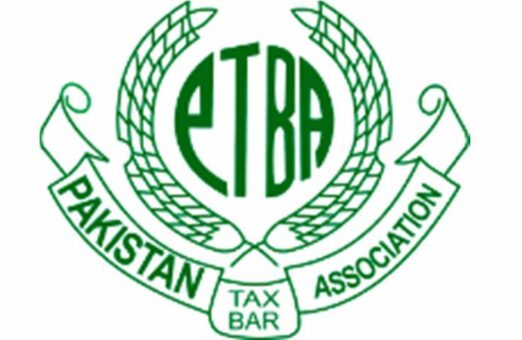KARACHI: Pakistan Tax Bar Association (PTBA) has said that there should be accountability framework for tax officers in order to make audit transparent.
Abdul Qadir Memon, President, PTBA in a message to PTBA Tax Journal outlined eight-point recommendations to tax authorities for making audit system more transparent in order to boost confidence of taxpayers on the authorities.
Memon said that the accountability framework and service standards should be introduced for the employees of Federal Board of Revenue (FBR), more particularly for the revenue officers in respect of quality of assessment order and standing of their orders in the test of appeal including but not limited to final revenue generated by the exchequer.
The PTBA said that laws should be formulated in such a manner that there is a clarity, certainty and finality of an assessment, which has been universally recognized as hallmark of audit and an assessment.
Following are suggestions for effective audit selection mechanism and amendment of assessment based on cogent, honest, justifiable with reasoning and intelligible nexus with the tax affairs of the taxpayers and capacity to pay tax:
— To place sophisticated tax intelligence system to gather data from withholding collection of taxes and third party information collected on the basis of transactions conducted through computerized national identity cards (CNICs).
— Cases are selected by the FBR only on the basis of defined risk areas or red flags trigger tax audit. The field forces are restricted to conduct audit of only such cases.
— The amendment of assessment is framed by the field forces under the following circumstances guided the rules of justice, equity and judicial conscious:
i. Any income chargeable to tax or sales has escaped assessment, under assessed, assessed at low rate or has been misclassified on the basis of definite information.
ii. The deemed assessment is erroneous in so far as it is prejudicial to the interest of revenue.
— In line with global practice (USA, UK, New Zealand, Australia, Canada) to provide a more supportive legislative and administrative environment for existing self-assessment arrangements and to make the taxation system fairer and more certain, it is imperative that a system of Binding Public and Private Ruling for Resident and Non-Residents be introduced.
— The commissioner should not be empowered to amend the assessment as many times as may be necessary on the same issue or point, which has already been subject matter of reassessment or further assessment proceedings.
— The time limit for amendment of assessment should be reduced to two years from the end of the financial years in which the commissioner has issued the original order to the taxpayer and one year in case of amended assessment; whichever is later.
— Relevant laws under the provisions of Direct and Indirect Taxes should be amended in a manner that:
i. Once the audit for any tax year is conducted/completed under Section 177 read with Section 214C of Income Tax Ordinance, 2001; there should not be any audit of monitoring of withholding/collection of taxes and amendment of assessment unless ‘definite information’ comes into the possession of the commissioner.
ii. Once the sales tax audit for any year is conducted in respect of registered taxpayer under the Section 72B there should not be audit under Section 25 of the Sales Tax Act, 1990.
